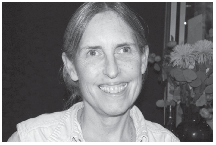By Ruby Phillips
 Time passes quickly, and it’s now been 30 years that I’ve refused to pay for U.S. military wars. I began to resist after a local war tax resistance volunteer attended a meeting at my workplace and introduced us to the practice and underlying philosophy of war tax resistance (WTR). Prior to his presentation, I had never heard of it; since then, I have been empowered by this way of life and cannot imagine returning to the excess obedience and internal denial of paying for war.
Time passes quickly, and it’s now been 30 years that I’ve refused to pay for U.S. military wars. I began to resist after a local war tax resistance volunteer attended a meeting at my workplace and introduced us to the practice and underlying philosophy of war tax resistance (WTR). Prior to his presentation, I had never heard of it; since then, I have been empowered by this way of life and cannot imagine returning to the excess obedience and internal denial of paying for war.
Not that this journey has been without inconvenience, anxiety or unexpected difficulty. The IRS has emptied three bank accounts; though fortunately they have not been successful in harvesting vast sums from their efforts. They have tried to garnish my wages at five jobs, necessitating reducing my paid hours to below the garnishable level. I can never own a house in my name without risking its confiscation.
Still, for me, war tax resistance has been a profoundly empowering expression of economic integrity. I can take full responsibility for stewarding the financial resources that pass through my life. Instead of paying for war, I joyously donate 10% of all earnings and gifts to organizations that support human empowerment and planetary sustainability. I also appreciate the conscientious and creative community economic practices that WTR necessitates.
Of course, I still bear responsibility for our government’s war atrocities and military policies, since they are carried out in my name as a U.S. citizen.
A supportive friend asked me recently if I have regrets about walking this path of war tax resistance, since it has definitely required long-term instability in my work and economic uncertainty as I approach older years.
I certainly regret that I/we have not been able to inspire thousands and millions of U.S. citizens to resist war taxes, or otherwise to risk our comfort in support of our deepest values.
A much deeper regret is my generation’s failure to stop or even abate our government’s lethal policies, which have led to the death, disabling, torture, long-term poisoning, displacement, and occupation of millions of people on every continent.
In her latest book, Drift, Rachel Maddow articulates a history of U.S. military policy since 1960. Policymakers have systematically and successfully quarantined the realities of military life into a small segment of U.S. people, ensuring that most U.S. folks are not directly exposed to the devastating effects of war on GIs, veterans, and their families — let alone the effects on those at the receiving end of our policies: fear of death from the sky, constant visceral anxiety of living under occupation, grief and rage of losing a limb or a loved one, being raped by a U.S. soldier, depleted uranium or white phosphorus, a village destroyed “by mistake,” life in a refugee camp, ancient land stolen for a U.S. military base.
As a health worker, I am constantly reminded of the amazingly miraculous and utterly fragile nature of our bodies. It is so easy to kill, disable, torture, poison or instill long-term trauma in us. At the same time, love and support powerfully bolster our well-being as we navigate healing from agonizing experiences.
As a lifelong student of nonviolence, I have learned so much about the nature of violence and healing from GI resisters, vets working for peace, and lots of brothers and sisters in prison. Often, perpetrators of violence have also been victims of profound oppression and violence. In circles of deep respect and trust, we can slowly heal and reclaim our humanity and dignity, and make our way forward to authentic solidarity. People who have perpetrated violence and take up healing have very special gifts as teachers of peace to offer to all of us.
In light of very real terrors and fundamental insecurities engendered by war, the economic insecurity in my life pales. So instead of choosing the false comfort of predictability, I choose the courage of active community solidarity through war tax resistance (among other strategies). I joyously choose to stand with peace workers of all nations, victims of war and systematic oppression everywhere, GI resisters and vets working for peace. I hope and endeavor that we may be able to inspire many, many more folks to join us in effective efforts to end war and heal the root causes of it.
Ruby Phillips lives in Seattle and enjoys creating a world of sanity and respect with elders, queers, people living in prisons, vets and GI resisters, human rights activists, and other motley crew members of humanity.
